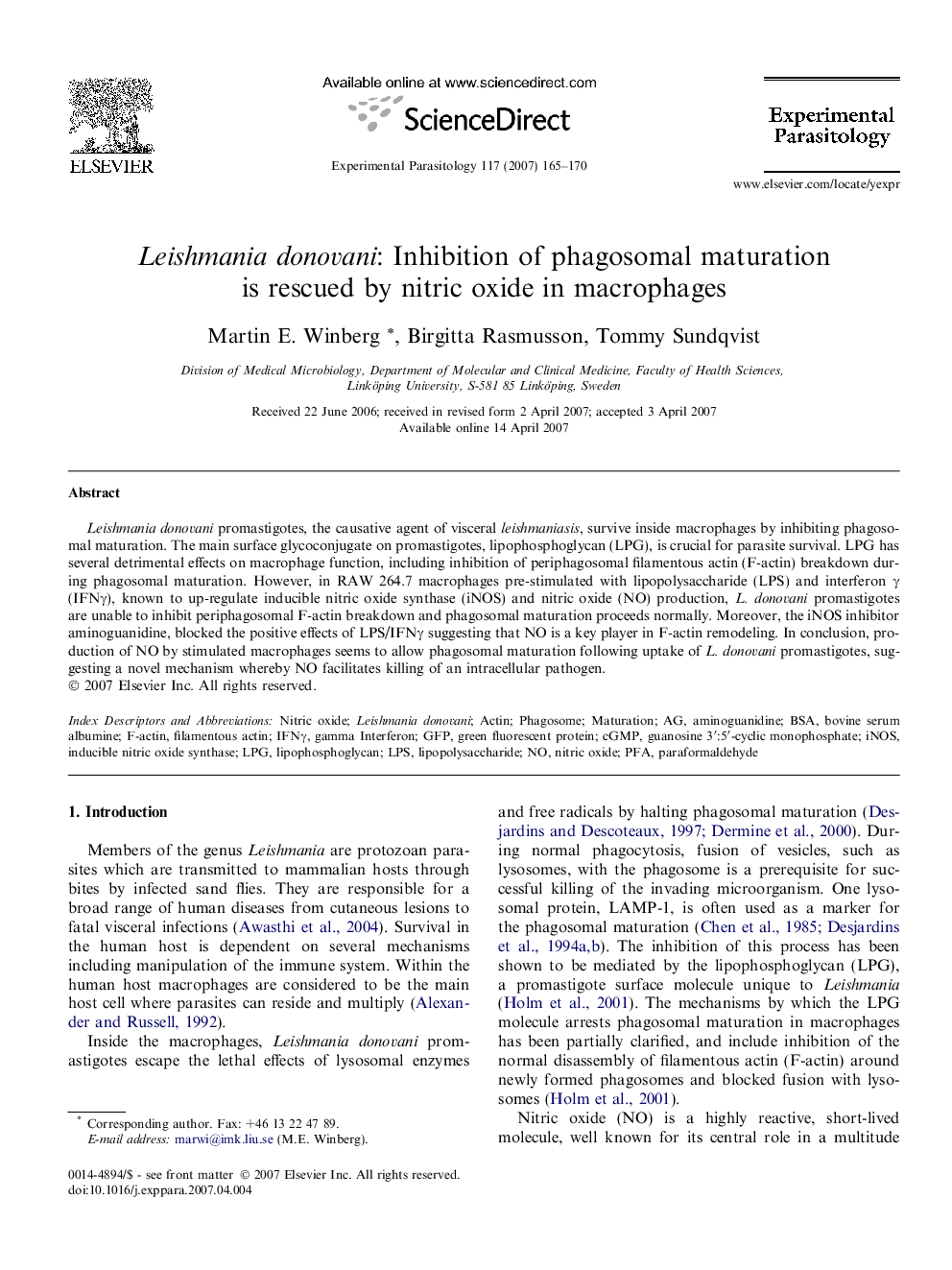| Article ID | Journal | Published Year | Pages | File Type |
|---|---|---|---|---|
| 4371813 | Experimental Parasitology | 2007 | 6 Pages |
Leishmania donovani promastigotes, the causative agent of visceral leishmaniasis, survive inside macrophages by inhibiting phagosomal maturation. The main surface glycoconjugate on promastigotes, lipophosphoglycan (LPG), is crucial for parasite survival. LPG has several detrimental effects on macrophage function, including inhibition of periphagosomal filamentous actin (F-actin) breakdown during phagosomal maturation. However, in RAW 264.7 macrophages pre-stimulated with lipopolysaccharide (LPS) and interferon γ (IFNγ), known to up-regulate inducible nitric oxide synthase (iNOS) and nitric oxide (NO) production, L. donovani promastigotes are unable to inhibit periphagosomal F-actin breakdown and phagosomal maturation proceeds normally. Moreover, the iNOS inhibitor aminoguanidine, blocked the positive effects of LPS/IFNγ suggesting that NO is a key player in F-actin remodeling. In conclusion, production of NO by stimulated macrophages seems to allow phagosomal maturation following uptake of L. donovani promastigotes, suggesting a novel mechanism whereby NO facilitates killing of an intracellular pathogen.
